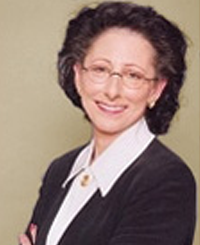Is Your Approach to Eldercare Like Deferred Maintenance?
What Is the Cost of Waiting?
In 1975, NYC went nearly bankrupt. In an attempt to save money, it was decided that the city would not paint the bridges that year so they could use the money somewhere else. The next year, the “somewhere else” again expected to receive the bridge money . . . and got it – and for another year, the bridges were not painted. By the time the money was allocated back to the bridges, instead of just the cost of paint, there was serious damage to the infrastructure that ultimately cost 10 if not 100 times more in repairs – to say nothing of the impact on traffic during construction, the wear and tear on other streets and neighborhoods, delays, stress, etc. Annual maintenance would have saved all that.
Every year my sister in New Hampshire tells me about how the ice storms have taken out the power lines creating power outages for days at a time. This has been going on for at least the 20+ years that they have lived there. Every time the power goes out (and most years it goes out a lot), there are hundreds of thousands of people without power, hundreds of deaths across the region, at a cost of billions of dollars. Every year I wonder why they don\’t just bury at least some of the lines. It sure would look better! Would it be expensive? Yes. But would it really be that much more expensive than the cost of fixing them every year – after the deaths and destruction that is!
The Haitian earthquake of 2010 left 230,000 to 300,000 people dead and causing tens, if not hundreds of billions of dollars in damage . The pledges of support are heart warming but Haiti\’s issues are not new. For generations, Haiti has been the poorest nation in the Western Hemisphere. Long before this year\’s earthquake, people talked about the need for better, safer housing, health care, and better food distribution. As I watched in horror, I couldn\’t help but wonder how many lives would have been saved if all the talk had been put into action decades ago.
Long before the oil spill in the Gulf, there was reason for concern – if not about the way drilling was being done then at least the lack of disaster planning. But . . . well . . . you know!
Why do I mention all of this? Because so many families approach eldercare the same way. They know they should do something or take some preliminary action, but they don\’t . . . hoping they can deal with other more urgent things first. But hope is not a strategy – and doing nothing is not a rational option!
Let me give you an example: Several months ago a daughter and I had a free get-acquainted conversation about her 94 year old father. She wanted to do Generational Coaching but, at the time, things seemed to ok with her father. Plus she had her work, summer family plans coming up, as well as sibling issues, and you know . . . life! Then her dad had heat stroke, fell and broke his hip, and ended up in the hospital. Taking care of her dad is now at the top of the family “to do” list but the costs in time, money, and emotion for the family and their dad to resolve the issues are now massively greater than they would have been just a couple of weeks ago.
I know that a lot of family members would rather do just about anything to avoid getting involved with eldercare issues – especially when there\’s no immediate need. And waiting may seem easier in the short term. But there are so many benefits to getting started early. That way, not only will you and your parents have time to talk about the future (and do research, make plans, make sure financing is in place, etc.), you will have better, stronger relationships with your parents and your sibs.
Benjamin Franklin said: “An ounce of prevention is worth (far more than) a pound of cure”.
© Copyright AgeWiseLiving™ 2010 You can find information about how to talk with your aging loved ones in “The Ultimate Caregiver\’s Success System” by going to www.AgeWiseLiving.com. While there, sign up for Barbara\’s free monthly newsletter. You can also contact Barbara by calling toll-free (877) AGE-WISE. Barbara E. Friesner is the country\’s leading Generational Coach and expert on issues affecting seniors and their families. She is an adjunct professor at Cornell University.


